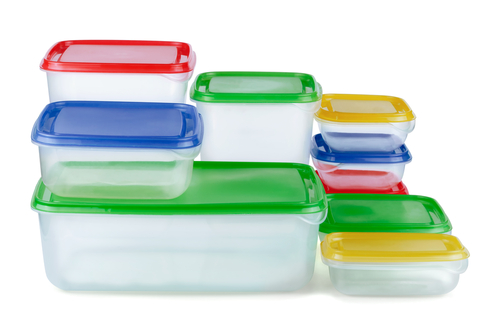Is The Plastic In Your Kitchen Making You Sick?
pen up a kitchen cabinet anywhere in the world and you are…

Open up a kitchen cabinet anywhere in the world and you are bound to find a few plastic containers. Plastic cups, plastic plates, plastic drinking bottles and plastic food storage containers play a major role in our kitchens with uses that range from prepping food to storing leftovers.
Over the last few years, an intense debate has been occurring amongst food safety experts. Some of these plastic containers contain Bisphenol A (BPA), a chemical thought to be the cause of numerous health concerns. Many argue that the use of BPA in the kitchen should be banned while others assert that the research is not comprehensive enough to warrant a ban.
The World Health Organization (WHO), a leading body in universal healthcare standards, leans towards the latter side of the debate stating that it may be too soon to come to a conclusion about the safety of BPA. This however, has not stopped a few countries from banning the use of BPA-containing plastics or limiting their use, especially in products designed for babies and young children.
What is Bisphenol A (BPA)?
BPA is a compound that was originally designed to work as an artificial form of the hormone estrogen. When a stronger alternate was developed, the medical field abandoned its use and it quickly found a new life in the manufacture of a sturdy plastic known as polycarbonate. Today, polycarbonate lines food cans and is used in the manufacture of water bottles, baby bottles, sippy cups and many of the plastic containers we store food. As these plastics age and wear, they emit some BPA into the food products they hold. When we consume this food, we potentially ingest BPA which can cause health concerns that include reproductive problems, heart disease, diabetes and behavioural problems in children.

Consumer pressure has led several manufacturers to abandon BPA use, but there remains a percentage of companies that continue to use it. If you are concerned about the possible effects of BPA on your health there are a few things you can do to minimize your risk of exposure.
- Opt for reusable plastics that do not contain BPA. To do this, look for a phrase such as “BPA-Free” or review the recycling signs often printed on the bottom of plastic containers. BPA-containing items are identified with a “7” and/or “PC” (polycarbonate). Products without BPA are labelled with the numbers 1, 2 or 4.
- Avoid microwaving food in plastic containers. Heat breaks down the particles of plastic, releasing BPA into your food. Rather transfer your food to a microwave safe ceramic or glass plate/container and reheat in it.
- Replace plastic containers on a regular basis and throw out those that show signs of wear, tear and heat damage.
- Limit intakes of canned foods that are lined with a plastic coating. As much as possible, opt for fresh versions of these foods.
- Store your food in glass containers instead of plastic. Pyrex brand or similar dishes are a great BPA-free addition to consider. Not only can you cook in them, you can store your food and reheat it in the same container.
- If you normally cook your food in plastic containers – think moin-moin – consider using aluminium bowls or traditional banana leaves which also add a touch of flavour to the dish.
- Avoid buying foods cooked in plastics.
Until the research is more conclusive and the debate settled amongst the food safety and health experts, be cautious in the use of plastics in the kitchen.
Here’s to your health!
